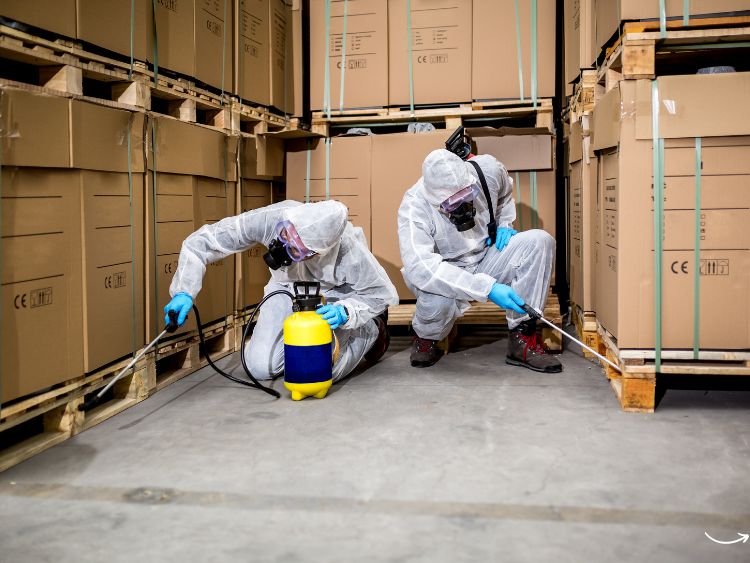Ugh, pests! Just the thought of them can make anyone’s skin crawl. Whether it’s ants marching across your kitchen counter, mice scurrying in the attic, or bedbugs turning your nights into nightmares, pests are an unwelcome intrusion in our lives. But fear not! We’ve got you covered with the ultimate guide to the best pest control methods. From natural remedies to professional exterminators, this article will provide you with all the information you need to keep your home pest-free. So, let’s dive in and reclaim your space from those pesky invaders!
Why Is Pest Control Important?
Pest control isn’t just about keeping your home looking tidy. It’s essential for maintaining a healthy living environment. Pests can carry diseases, cause allergies, and even damage your property. For instance, rodents are notorious for chewing through wires, which can lead to electrical fires. Termites can silently destroy the wooden structure of your home, causing extensive and expensive damage. Effective pest control can prevent these issues and give you peace of mind.
Types of Pests and Their Dangers
Insects
- Ants: These tiny invaders can contaminate food and cause structural damage to buildings.
- Cockroaches: Known carriers of diseases like salmonella, they can also trigger asthma and allergies.
- Bedbugs: These nocturnal pests feed on human blood, leading to itchy bites and sleepless nights.
Rodents
- Mice and Rats: Aside from spreading diseases, they can gnaw on electrical wires, causing potential fire hazards.
- Squirrels: Though cute, they can cause significant damage by chewing on wood and insulation.
Other Pests
- Termites: Silent destroyers of wooden structures, leading to costly repairs.
- Mosquitoes: Carriers of serious diseases like malaria, dengue, and Zika virus.
- Spiders: While many are harmless, some can deliver painful and potentially dangerous bites.
Best Pest Control Methods
Natural Remedies
Sometimes, the best pest control methods are the ones that don’t involve harsh chemicals. Here are a few natural remedies to try:
- Diatomaceous Earth: A natural powder that dehydrates and kills insects like ants and cockroaches.
- Essential Oils: Peppermint, eucalyptus, and lavender oils can repel pests such as spiders, ants, and mosquitoes.
- Borax: Mix with sugar to create a bait that ants will carry back to their colony, effectively killing them.
DIY Pest Control
If you’re a do-it-yourself enthusiast, there are plenty of effective pest control methods you can try at home:
- Traps and Baits: Use mouse traps, sticky traps for insects, and bait stations to target specific pests.
- Sealing Entry Points: Prevent pests from entering by sealing cracks, gaps, and holes in walls, doors, and windows.
- Regular Cleaning: Keep your home clean and clutter-free to minimize hiding spots and food sources for pests.
Professional Exterminators
For severe infestations or pests that are difficult to control, hiring a professional exterminator might be the best solution. Here’s what to look for:
- Licensed and Insured: Ensure the exterminator is licensed and carries insurance for liability and worker’s compensation.
- Experience and Reputation: Check reviews and ask for references to gauge their reliability and effectiveness.
- Guarantee: A reputable company should offer a guarantee on their services, ensuring they will return if the pests come back.
How to Choose the Best Pest Control Company
Choosing the right pest control company can be daunting. Here are some tips to help you make an informed decision:
- Research and Reviews: Look up local pest control companies and read reviews from previous customers.
- Compare Quotes: Get quotes from multiple companies to compare prices and services.
- Ask Questions: Inquire about their methods, products used, and experience with your specific pest problem.
- Check Certifications: Ensure the company is certified by relevant authorities and adheres to industry standards.
FAQs About Best Pest Control
How often should pest control be done?
Regular pest control is recommended every three months to prevent infestations. However, if you notice signs of pests, it’s best to address the issue immediately.
Are natural pest control methods effective?
Yes, natural methods can be effective, especially for minor infestations. They are a safer option for homes with children and pets.
What should I do to prepare for a pest control treatment?
Before treatment, remove any clutter, vacuum thoroughly, and store food in airtight containers. Follow any specific instructions provided by the pest control company.
Can pests develop resistance to treatments?
Yes, some pests can develop resistance to certain chemicals over time. This is why it’s essential to use integrated pest management strategies and rotate treatments.
Summary
Keeping your home pest-free requires a combination of vigilance, regular maintenance, and, at times, professional help. From natural remedies to DIY methods and professional services, there are various ways to tackle pest problems effectively. Remember, the best pest control approach is proactive rather than reactive. By taking preventive measures and addressing issues promptly, you can ensure a healthy and comfortable living environment for you and your family.
Authoritative Links
- Centers for Disease Control and Prevention (CDC): https://www.cdc.gov
- Environmental Protection Agency (EPA): https://www.epa.gov
- National Pest Management Association (NPMA): https://www.pestworld.org
By following this comprehensive guide, you’ll be well-equipped to handle any pest problems that come your way. Say goodbye to those pesky invaders and enjoy a pest-free home!
